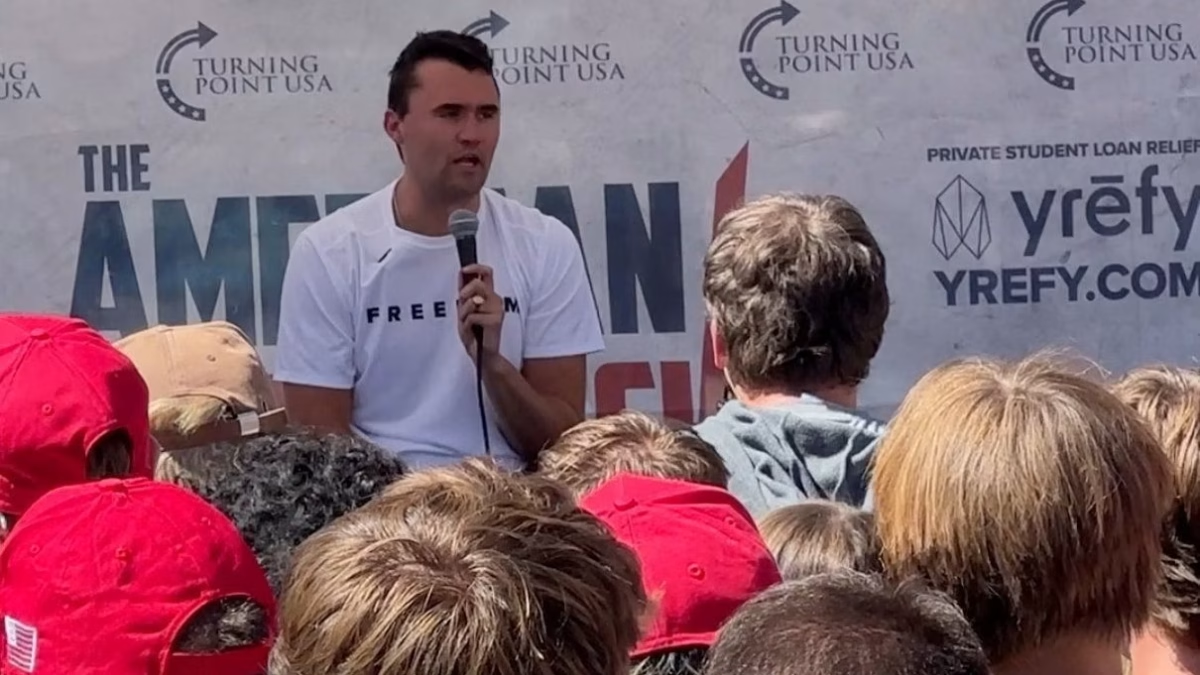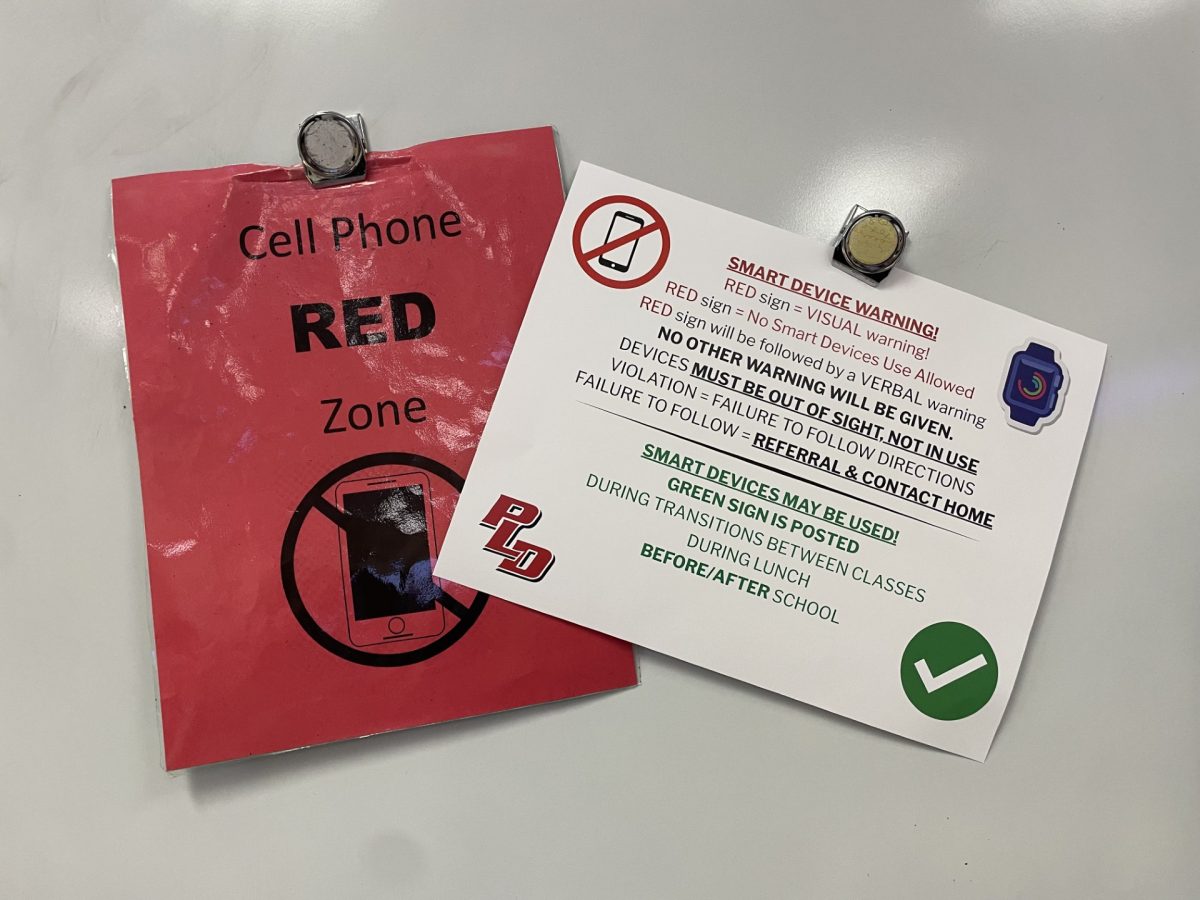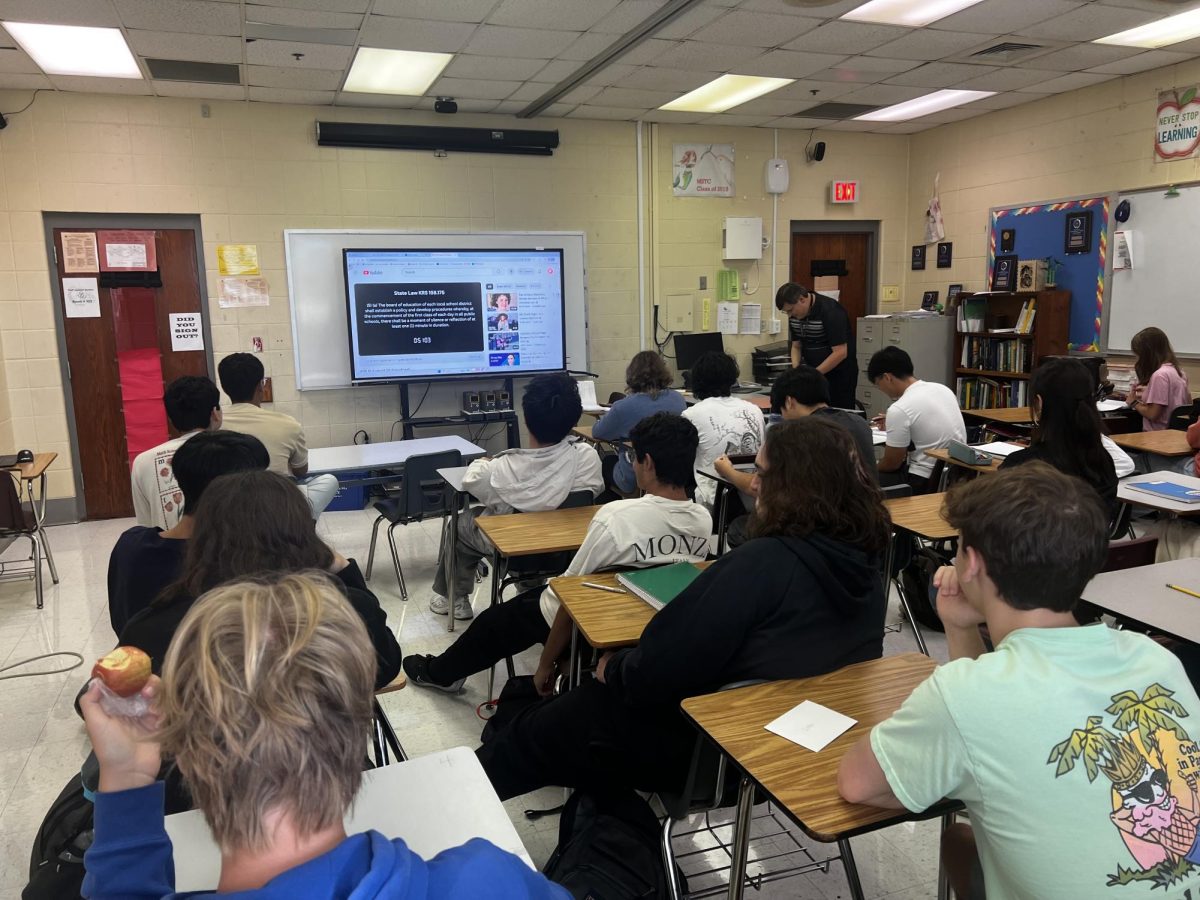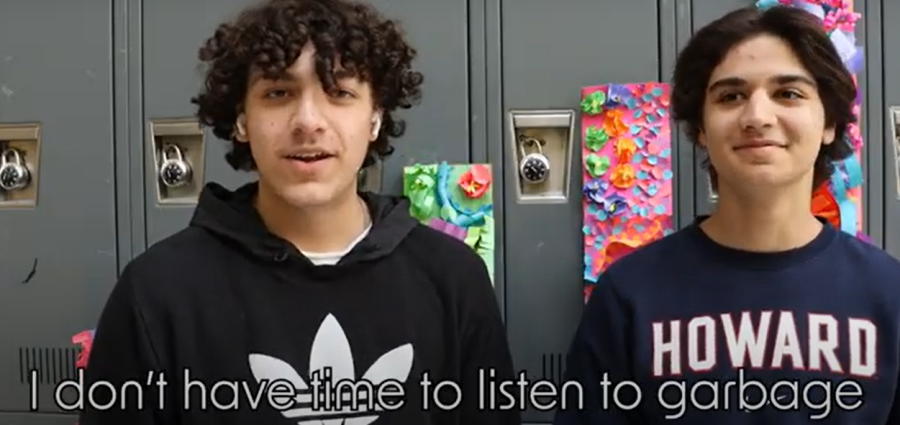Respect. That’s the first thing we’re taught in school—respect your teachers, respect your peers, respect the system. But what happens when the people leading that system forget to respect each other?
As I approach graduation, I’ve spent years learning to respect the leadership and structure of our school system. Teachers, administrators, and the community have all played a part in shaping my education. But after attending the FCPS Board Budget Workshop on Feb. 27, I found myself questioning what I had always believed about the people leading our schools.
I have been taught how to show proper decorum when making presentations, so I was taken aback when I saw the exchange that took place at this meeting.
Toward the beginning of the meeting, board member Amanda Ferguson asked why the former Budget and Finance Committee chair, the only parent on the board, was denied access to the FCPS budget.
Superintendent Demetrus Liggins said that he didn’t think most people would understand all the numbers [in the budget], and dismissed that it was to hide anything.
“It’s not a matter of transparency,” he said.
Board member Penny Christian added, “I think it’s also disingenuous to imply that this board or this district was hiding something that is completely public.”
When Ferguson began to reply, Christian raised her voice and said, “Don’t interrupt me.”
She went on, “Here’s what’s not going to happen. I will not be silenced, so you’re gonna let me finish.”
In response, Ferguson became visibly emotional. Christian responded by appearing to mock her. “I don’t care,” she said.
I locked eyes with a fellow high school reporter from the Lafayette Times. She and I were both confused. Was this really happening?
Later, I emailed Christian and Ferguson to ask for clarification and context of the exchange. I received no response from Ferguson, but Christian responded, “Sometimes emotions get the better of all of us, even school board members.”
I appreciate her response, and I agree with the sentiment–who hasn’t lost their cool at some point? But it was unsettling to see my district’s school board members lose theirs.
It’s human nature not to always be calm and collected, and it’s unfair of me to judge people for simply being human, but should we be able to hold certain people more accountable, especially when it’s a leader?
Maybe not. In a televised House Hearing on May 16, 2024, Rep. Marjorie Taylor Greene questioned if Rep. Jasmine Crockett’s “fake eyelashes” were impairing her ability to understand the topic at hand. Crockett later asked the chair to clarify if a statement like, “Your bleach-blonde, bad-built, butch body…” would be engaging in personalities, clearly referencing Greene.
In this back-and-forth, it was less about policy and more about tearing the other person down. Witnessing two women in leadership go at each other in this way was especially jarring.
The jabs at physical appearance were in poor taste, and . Believe me, I know.
It’s hard enough for women to be taken seriously on a professional level, and these examples perpetuate this issue that won’t be going away anytime soon.
As a high school student, I’ve faced my fair share of tough situations—group projects that go off track, disagreements with classmates, and the pressure of leadership roles in clubs. I get it. It’s not always easy to keep emotions in check.
But both of these examples show more than just a disagreement. I felt second-hand embarrassment at these displays of disrespect. It’s hard for me to watch adults, people who are supposed to set an example for us, behave in ways that feel so… childish.
And it’s not just women.
At the Tennessee state capitol on March 26, Rep. Justin Pearson (D-Memphis) attempted to confront Rep. Andrew Farmer (R-Sevierville) after a tense debate over gun legislation. Pearson proposed a bill to reinstate gun carry permits, but after it failed, the two lawmakers exchanged harsh words.
Pearson, angered by the lack of gun reform, attempted to confront Farmer physically, lea ding to their separation.
We’ve all seen political leaders on both sides of the aisle being hostile and dismissive of others.
In a meeting between President Zelensky of Ukraine and Vice President JD Vance on Feb. 28, Vance demanded to know if Zelensky had ever said “thank you” for U.S. support. Zelensky, trying to respond, pointed out the devastation in his country, and President Trump then jumped in, dismissing Zelensky.
“Don’t tell us what we’re going to feel.”
But those arguments always felt so distant. Sadly, we’ve come to expect a certain level of spectacle in politics, but to see it trickle down to our community made it feel personal. Values we are taught in school—respect, kindness, and the importance of listening to each other—are made meaningless when it’s not what we see in practice.
These moments are often broadcast, shared, and turned into memes. It’s a joke, so why should we take any of it seriously? It’s hard to believe in professionalism when politics reward performance over principle.
Recently, I called out a boy in class for mocking a girl’s body, but why should he feel shame for being disrespectful when it’s clearly an accepted form of communication? If adults can get away with it, why wouldn’t he think he can, too?
These moments, whether in Congress or at a local budget meeting, don’t exist in a vacuum. They echo into classrooms, into conversations between students, and into what we accept as normal.
We’ve been told that leadership starts with us. But maybe it’s time we ask more of those who came before us, too.
I realize that leadership isn’t just about making decisions—it’s about setting a tone. And right now, adults are failing us. If we, as students, are expected to rise above conflict and treat others with respect, then we should expect the same, if not more, from adults.
It’s time we hold our leaders to a higher standard. The way they act affects the culture we live in, and honestly, I want it to be better.


























